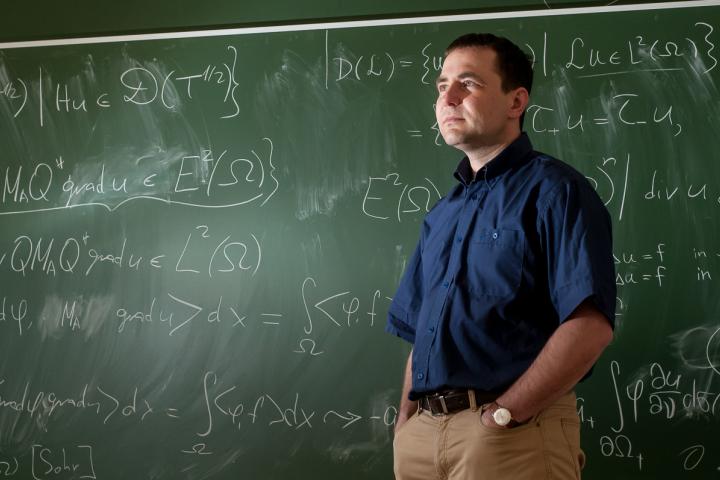
In this group, which brings together scientists from 30 countries, scientists develop methods of using mathematics to describe dynamic systems such as automotive transport or biological systems. David Krejčiřík will deal with evolutionary problems on waveguide structures under additional geometrical and electromagnetic disturbances. The research is motivated especially by the physics of nanostructures, for which it is necessary to develop new mathematical models and to explain quantum phenomena from the first principles. This research contributes to the development of new materials that could be used in the construction of quantum computers.
The European Co-operation in Science and Technology (COST) has been active since 1971 and its main goal is to strengthen links between scientists in different institutions across countries. The activities of the organization are financially supported by the European Union.